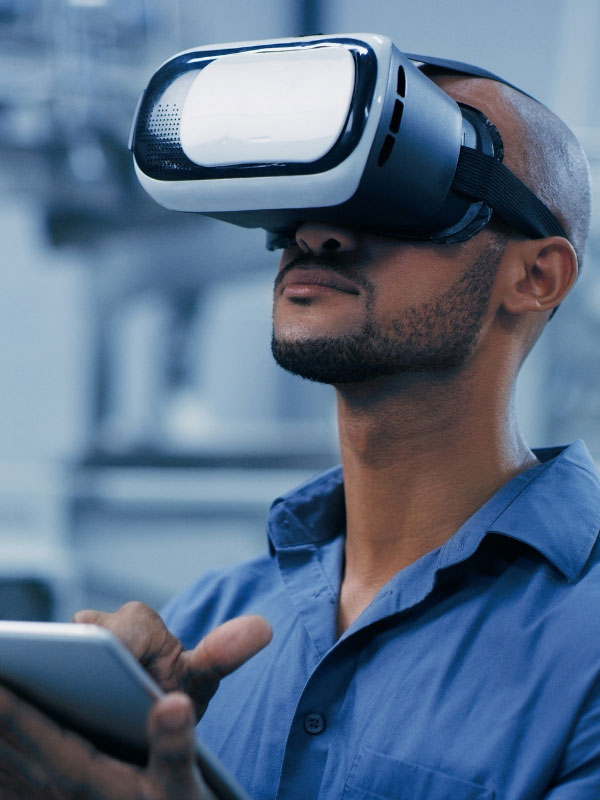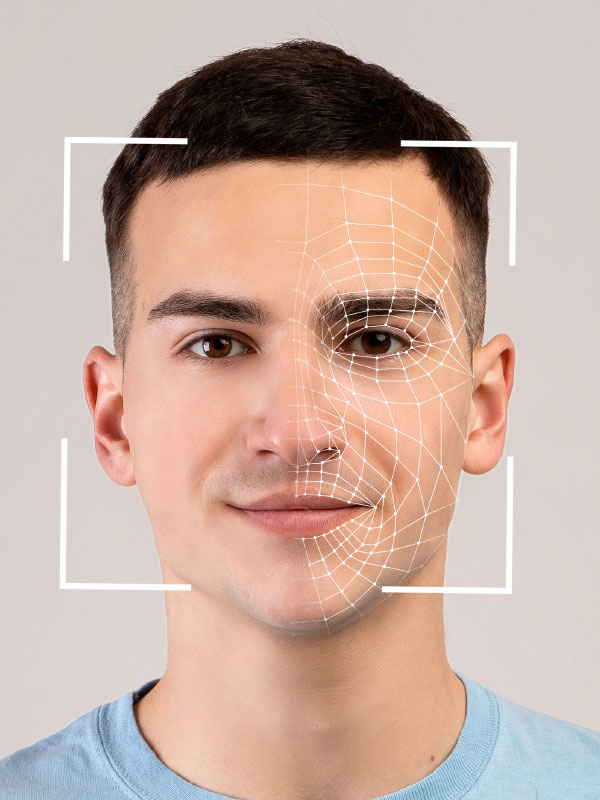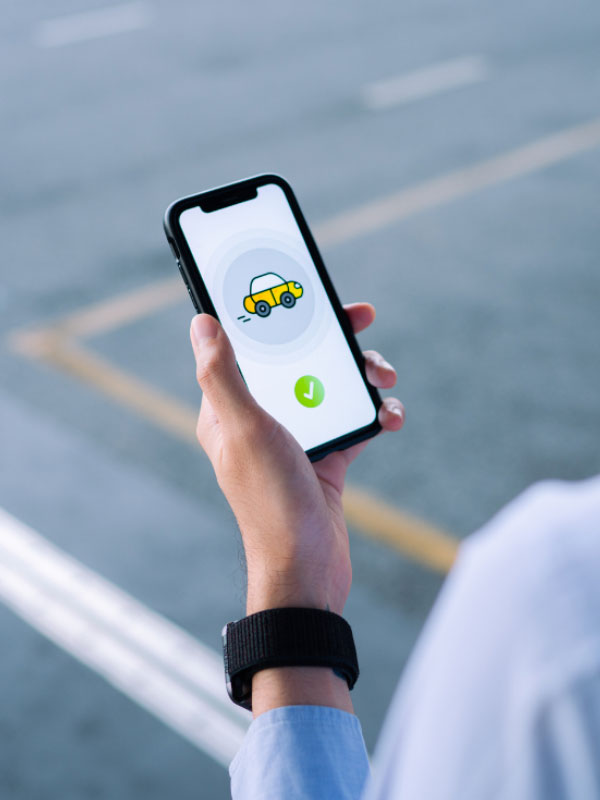5 Ways AI Will Revolutionise Business Travel
How next-gen technology will improve the traveller experienceThe Power of AI for the Business Travel Industry is Yet to be Fully Realised…
In today’s fast-paced world, where efficiency and productivity are more important than ever, AI is emerging as a game-changer in the realm of corporate travel. From streamlining bookings to enhancing traveller experiences, the potential for AI to transform the way we navigate the business travel landscape is immense. In this article, we take a look at 5 ways AI may – and already is – revolutionise the industry, offering a brief look into a future where truly intelligent technology has unlocked new doors hitherto unnoticed.
#1
Augmented Reality (AR) Aircraft Repair
The recent launch of Apple’s Apple Vision Pro glasses demonstrated the powerful potential of wearable augmented reality (AR) tech. Via heads-up displays and AI-powered queries, users of AR can seamlessly occupy the real and digital realms to reap the benefits of both. Though the technology is still in its infancy, its future as an aircraft maintenance tool is clear for all to see: a fully responsive piece of wearable kit that will help engineers diagnose problems and conduct repairs.
The potential integration of AI object recognition software could take things one step further. Engineers could pinpoint issues in real-time through their AR glasses and be informed of the exact part or tool needed to make a repair. This speeds up the maintenance process, meaning airlines can turn around planes much faster, thus improving flight schedule targets and reducing passenger delays. It also means fewer plane ‘going technical’ on the runway.
The possibilities are endless!
#2
AI-Powered Biometrics and Identification
Imagine no longer having to remember to bring passports or ID cards to the airport. With the continued development of AI recognition and biometrics technology, this near-sci-fi notion could become a very real reality. A face might be all a traveller needs to check in at an airport or board a plane. Paperwork would quickly become a thing of the past.
This seamless check-in experience would be bolstered by AI-powered security systems with the power to scan luggage and carry-on bags with a near-perfect degree of accuracy, meaning less need for passengers to sort their belongings before heading through customs.
The introduction of this technology might be sooner than you think. An AI security system was tested last year and could be potentially rolled out in 2024.
#3
AI Hotel Check-In and Concierge
When one thinks of AI, it’s hard not to conjure up images of semi-sentient robots. The two ideas seemed intertwined, a semiotic relationship instilled in our cultural consciousness by hundreds of books and movies, even if the idea of a human-thinking machine might seem faintly ridiculous. But as AI continues to develop apace, so too does the possibility of robots with the power to manage the day-to-day workings of hotels.
AI-powered concierges could soon be deployed in hotels to check in guests and deliver room service orders, all while learning an individual’s habits and preferences to ensure their stay is as comfortable as possible. These robot assistants will also be able to give up-to-the-second travel information and answer queries on the fly.
#4
Hyper-Personalised Travel Itineraries
AI-powered travel booking tools will one day be able to know its users with the intimacy of friends. While current technology allows travel booking systems to identify broad trends and preferences among its users, i.e. whether an individual usually travels for leisure or prefers to sit in First Class, AI could provide even more profound insights.
What if your booking tool knew that you were a professional welder and qualified scuba diver who likes to fly at night? Itineraries could be personalised with the tiniest details. Travellers would be guaranteed a smooth trip from beginning to end, sprinkled with extras.
#5
Smart Trips Optimised by AI Learning
What if AI could allow train, car, and flight service providers to unravel the tangle of a traveller’s journey and keep them moving along one, seamless thread. Every stage of a trip could be managed by a single AI assistant, whether through an integrated app or via a chatbot.
A traveler could book a train ticket on an app, the AI assistant will determine whether a rideshare might be necessary upon arrival, and then – depending on traffic conditions, the train’s expected arrival, and individual preferences – will select a car that is most likely to be there on time.
People will no longer need to research routes or transport delays manually; everything will be delivered to their pockets (or AR glasses) in real-time.
In Summary
Business travel is on a course to become intertwined with the transformative power of AI. The possibilities are endless, from the seamless integration of AI-powered biometrics for efficient identification processes to the utilisation of augmented reality for aircraft repairs.
AI-driven hotel check-ins and concierge services also have the potential to elevate the traveller experience, while hyper-personalised itineraries hint at a future where individuals are treated as individuals. Though it is still too early to predict exactly how AI will evolve, the possibilities inherent in the technology, and its impact on the business travel industry, is very clear. Now it’s time to wait and see, though we suspect we won’t be waiting too long!
HIGH TECH TRAVEL
Discover our award-winning, content-rich suite of travel technology completely tailored to your organisation. Experience tomorrow’s travel technology, today.
WATCH ON-DEMAND
Learn more about the future of business travel technology and AI from our very own Chief Technology Officer, Sophie Taylor, in episode 9 of our Travel Talks webinar..
Related Articles
7 Ways to Save Money on Business Travel as an SME
Business travel can be a significant expense for any company, especially for small & medium enterprises (SMEs). Fortunately, there are several strategies SMEs can implement to save money without sacrificing efficiency or the well-being of their travellers. In this article, we identify 7 key areas where SMEs can optimise their business travel budget, book better, and spend smarter.
How to Combat the Fragmentation of Business Travel Content
With change comes increased complexity and content fragmentation. In a recent whitepaper published by the Business Travel Association (BTA), content fragmentation is described as: “The lack of ability to provide consistency in service, data, and content across corporate travel; arisen from challenges and complexities from diverse content sources, formats and multiple distribution channels”. In this article, we identify the report’s key findings and discover how the future of the business travel sector might look.
Amsterdam: A Business Traveller’s Guide
Are you planning on travelling to Amsterdam for work? In this comprehensive guide to the Dutch capital for business travellers, we delve deeper into navigating the city’s unique corporate landscape, offer our top tips for getting around, and pick out our top 3 things to see or do to make your trip unforgettable.
CALL US
08448 553700
+44 (0) 1206 716111 (if outside the UK)
EMAIL US
ALWAYS HERE
Mon – Sun, 24 hours a day
LET’S TALK
Fill in the form below and we’ll get back to you as soon as we can.







